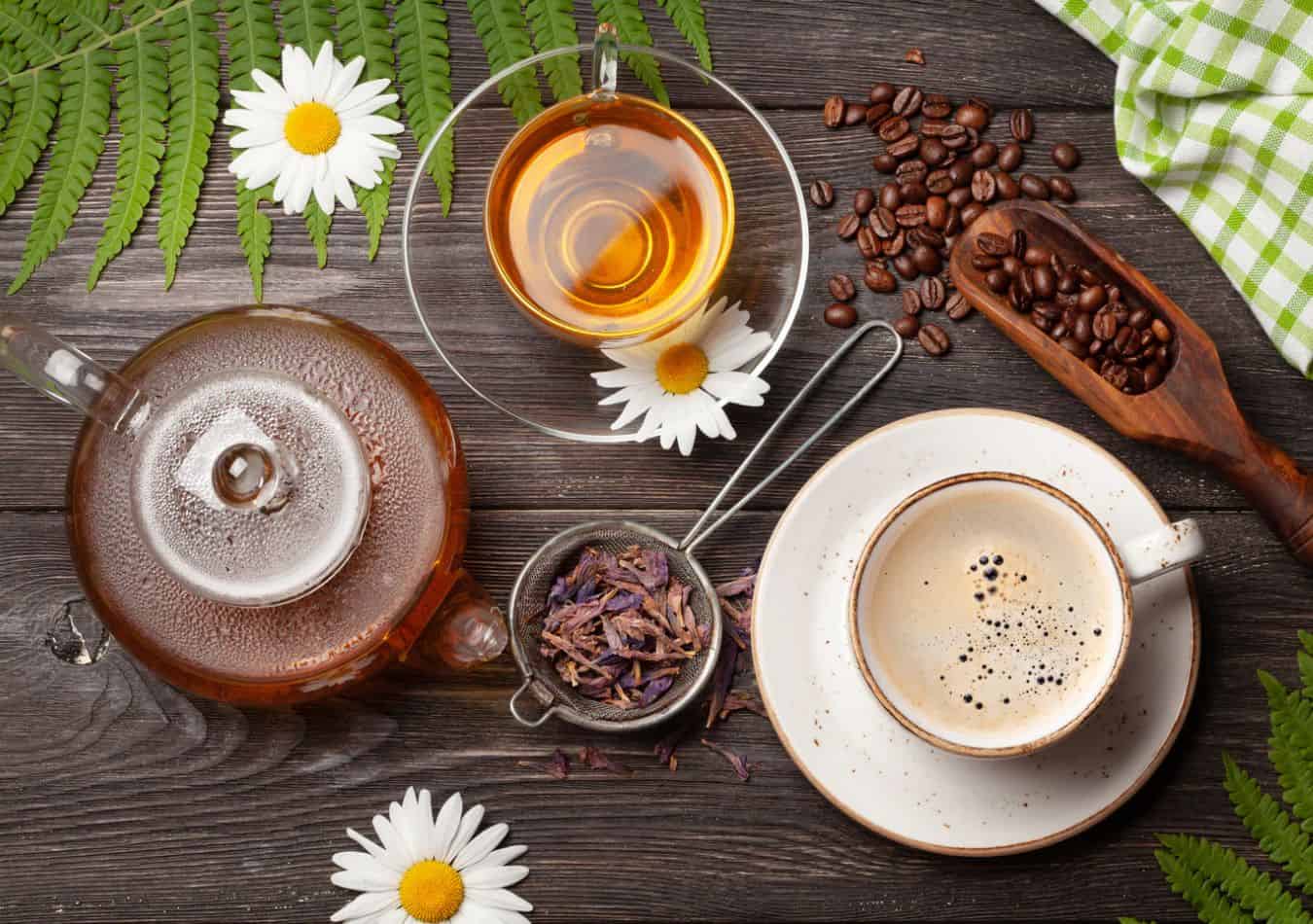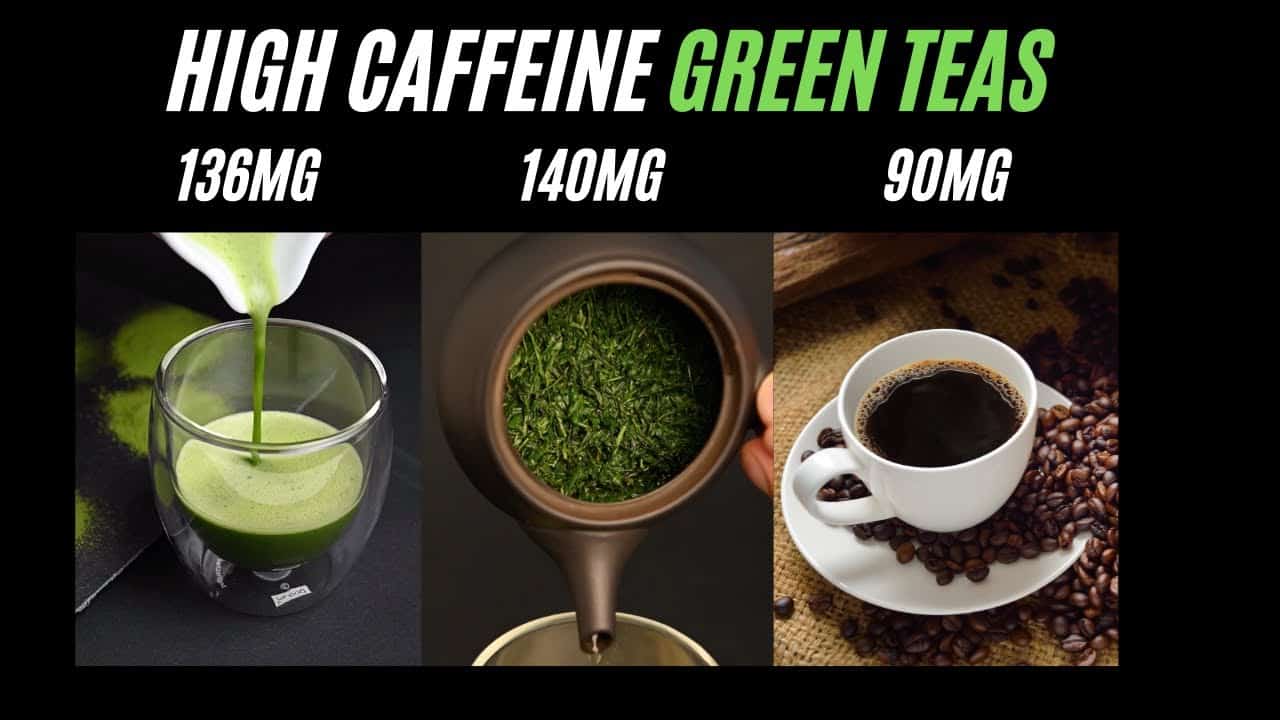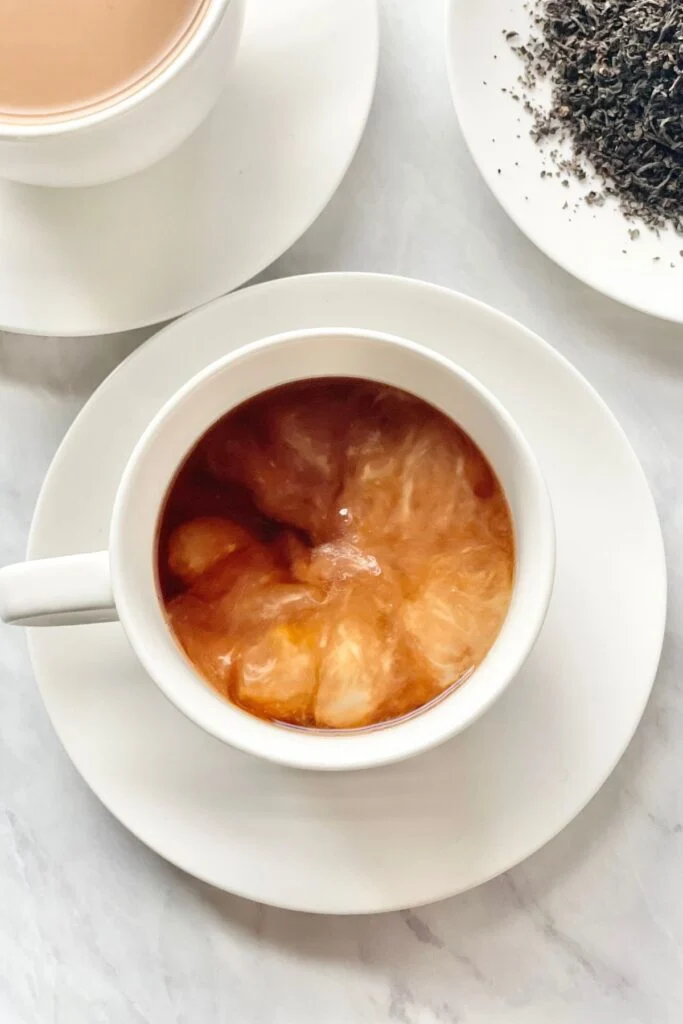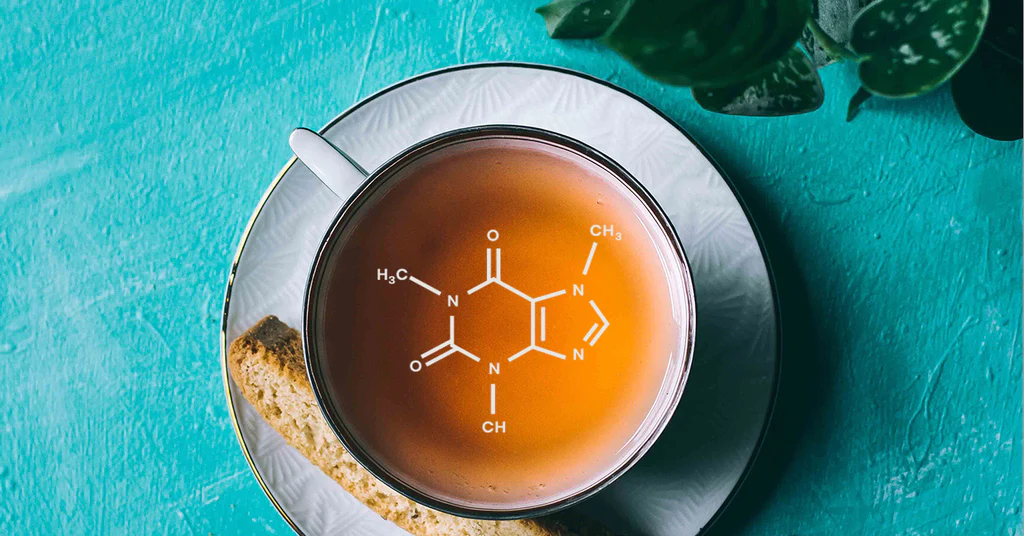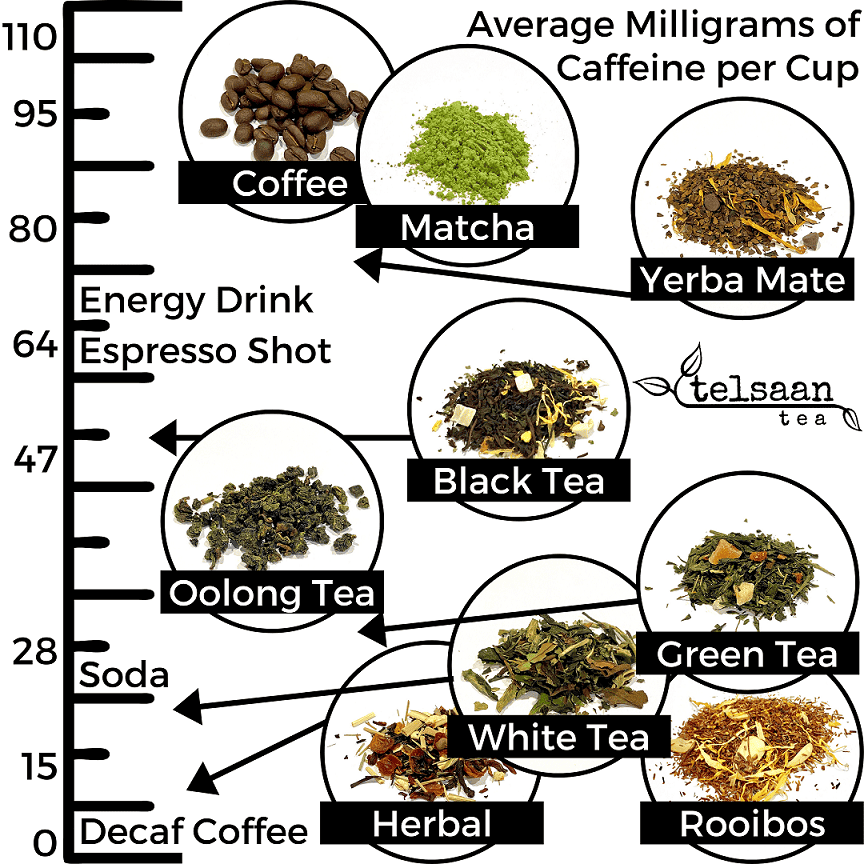As a dedicated tea enthusiast, I have always been fascinated by the world of tea and its many intricacies. One aspect that has particularly caught my attention is the presence of caffeine in tea and its impact on our bodies. While most people associate caffeine with coffee, it is important to recognize that tea also contains this stimulating compound. In fact, understanding the benefits of caffeine in tea and how it affects our bodies can greatly enhance our appreciation for this ancient beverage. And today, I will share with you about what tea has the most caffeine!
Caffeine, a natural stimulant found in various plants including Camellia sinensis (the plant from which all true teas are derived), has numerous benefits when consumed in moderation. It acts as a central nervous system stimulant, helping to increase alertness and improve focus. Additionally, caffeine can boost metabolism and provide an energy boost throughout the day.
Key Takeaways
- Caffeine content in tea varies widely depending on the type of tea and brewing method.
- Black tea has the highest caffeine content, followed by green tea and oolong tea.
- White tea has a lower caffeine content, while herbal tea is caffeine-free.
- Factors such as water temperature, steeping time, and tea quality can affect caffeine levels in tea.
- To brew high-caffeine tea, use hotter water and longer steeping times, but be mindful of the tea’s quality and your own caffeine tolerance.
Understanding Caffeine Content in Tea
To fully comprehend the role of caffeine in tea, it is essential to understand how its content is measured. The amount of caffeine present in tea can vary depending on several factors such as the type of tea leaves used, their processing methods, brewing time, and temperature.
Caffeine content is typically measured by analyzing milligrams (mg) per 8-ounce cup or 240 milliliters (ml). However, it’s important to note that these measurements are approximate since factors like water temperature and brewing time can affect the final concentration.
On average, different types of teas contain varying amounts of caffeine per cup due to differences in processing methods and oxidation levels during production.
Types of Tea with High Caffeine Content
When it comes to high-caffeine teas, several varieties stand out: black tea, green tea, oolong tea,and white tea.
1) Black Tea: The King of Caffeine
Black teas are known for their robust flavors and higher levels of oxidation. This process contributes to their rich color and bold taste, but it also results in a higher caffeine content compared to other teas. On average, an 8-ounce cup of black tea contains around 40-70 mg of caffeine.
Aside from its invigorating properties, black tea offers numerous health benefits. It is rich in antioxidants that can help reduce the risk of chronic diseases such as heart disease and certain types of cancer. Black tea has also been associated with improved gut health and enhanced immune function.
2) Green Tea: A Surprising Source of Caffeine
Green tea, renowned for its delicate flavor and numerous health benefits, may come as a surprise when considering its caffeine content. While generally lower than black tea, green tea still contains a significant amount of caffeine. On average, an 8-ounce cup of green tea provides approximately 20-45 mg of caffeine.
Green tea is celebrated for its high concentration of catechins – powerful antioxidants that have been linked to various health benefits including improved brain function and reduced risk of cardiovascular diseases. Additionally, the combination of caffeine and L-theanine found in green tea can promote relaxation while maintaining mental alertness.
3) Oolong Tea: A Moderate Caffeine Boost
Oolong teas fall between black and green teas in terms of oxidation levels, resulting in a unique flavor profile that lies somewhere between floral and fruity notes. In terms of caffeine content, oolong teas typically contain around 30-50 mg per 8-ounce cup.
Oolong teas offer a range of potential health benefits due to their polyphenolic compounds which possess antioxidant properties. These compounds have been associated with weight management support by boosting metabolism and aiding digestion.
4) White Tea: A Gentle Jolt Of Caffeine
White teas are known for their delicate flavors derived from young leaves or buds that undergo minimal processing after harvest. Despite their subtle taste, white teas still contain caffeine, albeit in smaller amounts compared to black or green teas. On average, an 8-ounce cup of white tea contains approximately 15-30 mg of caffeine.
White tea is highly regarded for its high antioxidant content and potential anti-aging properties. It has been suggested that the antioxidants found in white tea can help protect the skin from damage caused by free radicals and promote a youthful complexion.
Herbal Tea: Caffeine-Free Options
| Herbal Tea | Caffeine-Free Options |
|---|---|
| Chamomile | Yes |
| Peppermint | Yes |
| Hibiscus | Yes |
| Rooibos | Yes |
| Lemon Balm | Yes |
| Ginger | Yes |
| Lavender | Yes |
For those seeking a caffeine-free alternative, herbal teas provide a delightful array of flavors without the stimulating effects of caffeine. Herbal teas are not derived from Camellia sinensis but rather from various herbs, flowers, fruits, and spices.
Herbal teas offer numerous health benefits depending on their ingredients. For example, chamomile tea is known for its calming properties and ability to promote relaxation before bedtime. Peppermint tea can aid digestion and soothe an upset stomach while ginger tea may help alleviate nausea.
Factors Affecting Caffeine Content in Tea
The caffeine content in your cup of tea can be influenced by several factors including the processing methods used during production as well as brewing time and temperature.
Tea processing plays a significant role in determining the final concentration of caffeine in each type of tea. For instance, black teas undergo full oxidation which results in higher levels of caffeine compared to green or white teas that undergo minimal oxidation.
Brewing time and temperature also impact the amount of caffeine extracted from the leaves into your cup. Generally speaking, longer steeping times at higher temperatures will result in more significant extraction rates for both flavor compounds and caffeine content.
Tips for Brewing High-Caffeine Tea
If you’re looking to maximize your intake of caffeinated tea, there are several tips you can follow when brewing:
1) Use hotter water: Higher water temperatures between 195°F (90°C) to 205°F (96°C) can help extract more caffeine from the tea leaves.
2) Increase steeping time: Allowing your tea to steep for a longer duration, typically around 3-5 minutes, will result in a higher caffeine content.
3) Opt for loose leaf tea: Loose leaf teas generally have larger leaves compared to tea bags, allowing for better extraction of caffeine and flavor compounds.
It’s important to note that these tips may result in stronger-tasting teas as well. Adjusting brewing methods according to personal preference is key when aiming for the perfect cup of high-caffeine tea.
Finding Your Perfect Cup of Caffeinated Tea
In conclusion, understanding the role of caffeine in tea can greatly enhance our appreciation for this beloved beverage. Whether you prefer black, green, oolong, or white teas – each with its unique flavor profile and varying levels of caffeine – there is a perfect cup waiting to be discovered.
By considering factors such as processing methods and brewing techniques, we can tailor our tea-drinking experience to suit our individual preferences and needs. Whether seeking an energizing boost or a soothing cup before bedtime, there is a wide range of options available that cater to every taste and lifestyle.
So go ahead and explore the world of caffeinated teas! Embrace the benefits they offer while savoring their diverse flavors and aromas. With each sip, you’ll not only enjoy a delightful beverage but also nourish your body with antioxidants and other health-promoting compounds found within these remarkable leaves. Cheers!
FAQs on What Tea has the Most Caffeine
What is caffeine?
Caffeine is a natural stimulant found in coffee, tea, and other plants. It is a central nervous system stimulant that can help improve mental alertness and reduce fatigue.
How much caffeine is in tea?
The amount of caffeine in tea varies depending on the type of tea and how it is brewed. On average, a cup of black tea contains around 47 milligrams of caffeine, while a cup of green tea contains around 30 milligrams.
What are the most caffeinated teas?
The most caffeinated teas are typically black teas, with some varieties containing up to 90 milligrams of caffeine per cup. Some popular high-caffeine teas include Assam, Darjeeling, and Yunnan.
How can I brew tea to maximize caffeine content?
To maximize caffeine content, use loose leaf tea and brew it for a longer period of time. The longer the tea is steeped, the more caffeine will be extracted. Using hotter water can also help extract more caffeine.
Are there any health risks associated with consuming too much caffeine?
Consuming too much caffeine can lead to negative side effects such as anxiety, insomnia, and increased heart rate. It is recommended that adults consume no more than 400 milligrams of caffeine per day, which is roughly equivalent to four cups of coffee or 10 cups of black tea.
Originally posted 2024-01-17 16:36:58.
